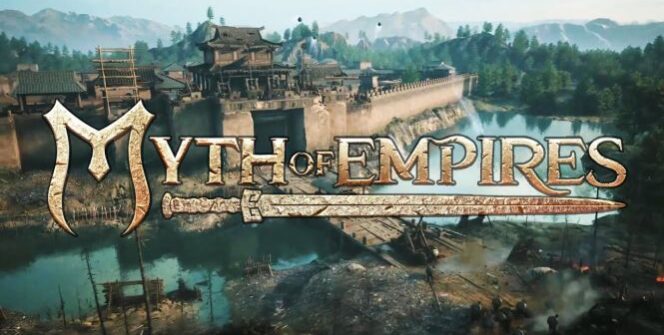Chinese strategy developer Angela Game rejects the DMCA claim.
Earlier this month, Studio Wildcard and Snail Games (the developer and publisher of Ark: Survival Evolved) filed a DMCA claim to have the sandbox strategy genre Myth of Empires (MoE) removed because they believe the source code for MoE is based on Ark, which an ex-Snail employee stole before he set up his studio. The studio claims that Snail Games’ evidence (a preliminary analysis showing that both games have the same names for hundreds and hundreds of classes, variables and functions) is incomplete and misleading. The names are not protected by copyright. Angela Game denied everything, and it all ended up in court.
The counterclaim filed on 9 December (“let MoE be back on Steam”) claims that the game is not based on stolen source code and that the removal from Valve’s digital store has caused and may cause irreparable harm to Angela Game. In a detailed response to it, Snail Games and Studio Wildcard wrote that Angela Game had provided almost no evidence to support what they had said, confirming the theft of the two companies’ IP: “Angela’s misconduct began in November 2018, when Yang Li Ping, an employee of Snail USA’s parent in China (Snail Game), requested and received access to Ark’s source code—for seemingly legitimate reasons,” the filing states. “But he secretly copied the source code, and a few months later, left to work at Angela.” Of the studio’s 82-person cast list in the game, 60 had previously worked at Snail Game, and Angela Game has reportedly been frantically modifying the game’s source code since the DMCA claim to cover its tracks…
Snail’s response includes reactions from Jeremy Stieglitz (Studio Wildcard co-founder), Jim Shun Tsai (Snail Games USA CEO), and Bastian Suter (BattlEye CEO), detailing how Snail and Studio Wildcard recognized the theft, which led to an analysis of the two games. MoE’s executable obtained from Steam is shockingly similar to Ark: Survival Evolved, says Stieglitz, and he says they found hundreds of header identities and are examining MoE’s content day by day, finding more and more similarities. Tsai wrote, “All employees of Wildcard, Snail USA, and Snail Games signed nondisclosure agreements promising to maintain technical secrets, like software, in confidence, and not to provide that material to third party,” Tsai said. “The source code was also stored on a server that could be accessed by only those employees who were given login credentials to that server.” But Suter, as the head of BattlEye Innovations (BattlEye anti-cheat technology: PlayerUnknown’s Battlegrounds, Destiny 2, Rainbow Six Siege, Fortnite…), discovered the case after reading PCGamer. “Myth of Empires’ executable contained several unique strings used by BattlEye integration code, which are also present in Ark. There are some slight changes to some of those strings, but those mostly consist of changing ‘BattlEye’ to ‘BatEye’ in almost all BattlEye references through the game. The fact that some of the strings used by BattlEye integration code that we located in Myth of Empires are unique and use the same format, capitalization, and even typos (‘recieve’ instead of ‘receive’) that were included in the BattlEye integration code for Ark left no doubt for me that the BattlEye integration code from Ark must have been copied and taken as a base for Myth of Empires,” he wrote. He also informed Stieglitz, who revealed the BattlEye traces that Studio Wildcard had found in MoE.
The document on Dropbox says that Snail and Wildcard want to ban Angela Game’s game from Steam. The two companies are also demanding that an independent, third-party review the source code of the two games, plus they want the source code and other documentation of MoE archived. But if such evidence comes to light, what is the point of fighting like a pig on ice?
Source: PCGamer



![[TGA 2025] Star Wars: Galactic Racer Focuses on High-Stakes Podrace Runs [VIDEO]](https://thegeek.games/wp-content/uploads/2025/12/theGeek-Star-Wars-Galactic-Racer-302x180.jpg)








![[TGA 2025] Star Wars: Galactic Racer Focuses on High-Stakes Podrace Runs [VIDEO]](https://thegeek.games/wp-content/uploads/2025/12/theGeek-Star-Wars-Galactic-Racer-300x365.jpg)


